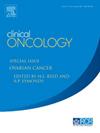原发未知癌症的基因组学研究:在现代临床实践中的应用
IF 3.2
3区 医学
Q2 ONCOLOGY
引用次数: 0
摘要
未知原发癌(CUP)被定义为转移性癌症,尽管进行了彻底的诊断,但仍无法确定导致转移性扩散的原发肿瘤。它预后很差,进展迅速,除了经验性化疗外,治疗选择有限。现代基因组学的进步在确定原发性起源组织(TOO)以及允许分子靶向治疗和免疫治疗用于治疗CUP患者方面发挥了作用。全基因组和全转录组测序产生了大量的数据,预测算法和人工智能可以用来使这些数据在临床上可操作。最近的试验表明,在临床决策中使用基因组数据可以改善CUP患者的预后。液体活检是一项令人兴奋的发展,它允许在整个治疗过程中或当组织难以获得时重复基因组分析。基因组学应常规应用于对CUP患者的护理、诊断和辅助治疗决策。本文章由计算机程序翻译,如有差异,请以英文原文为准。
Genomics in Cancer of Unknown Primary: Utility in Modern Clinical Practice
Cancer of unknown primary (CUP) is defined as metastatic cancer where the primary tumour responsible for metastatic spread cannot be identified despite thorough diagnostics. It has a very poor prognosis, is rapidly progressive, and has limited treatment options beyond empirical chemotherapy. Modern genomic advances play a role in identifying the primary tissue of origin (TOO) and in allowing molecular targeted therapies and immunotherapies to be used in the treatment of CUP patients. Whole genome and whole transcriptome sequencing produce vast amounts of data, and predictive algorithms and artificial intelligence can be used to make this data clinically actionable. Recent trials have shown that using genomic data in clinical decision-making improves outcomes for CUP patients. Liquid biopsies are an exciting development that allow for repeated genomic analysis throughout treatment or when tissue is difficult to obtain. Genomics should be used routinely in the care of CUP patients, at diagnosis and to aid treatment decisions.
求助全文
通过发布文献求助,成功后即可免费获取论文全文。
去求助
来源期刊

Clinical oncology
医学-肿瘤学
CiteScore
5.20
自引率
8.80%
发文量
332
审稿时长
40 days
期刊介绍:
Clinical Oncology is an International cancer journal covering all aspects of the clinical management of cancer patients, reflecting a multidisciplinary approach to therapy. Papers, editorials and reviews are published on all types of malignant disease embracing, pathology, diagnosis and treatment, including radiotherapy, chemotherapy, surgery, combined modality treatment and palliative care. Research and review papers covering epidemiology, radiobiology, radiation physics, tumour biology, and immunology are also published, together with letters to the editor, case reports and book reviews.
 求助内容:
求助内容: 应助结果提醒方式:
应助结果提醒方式:


